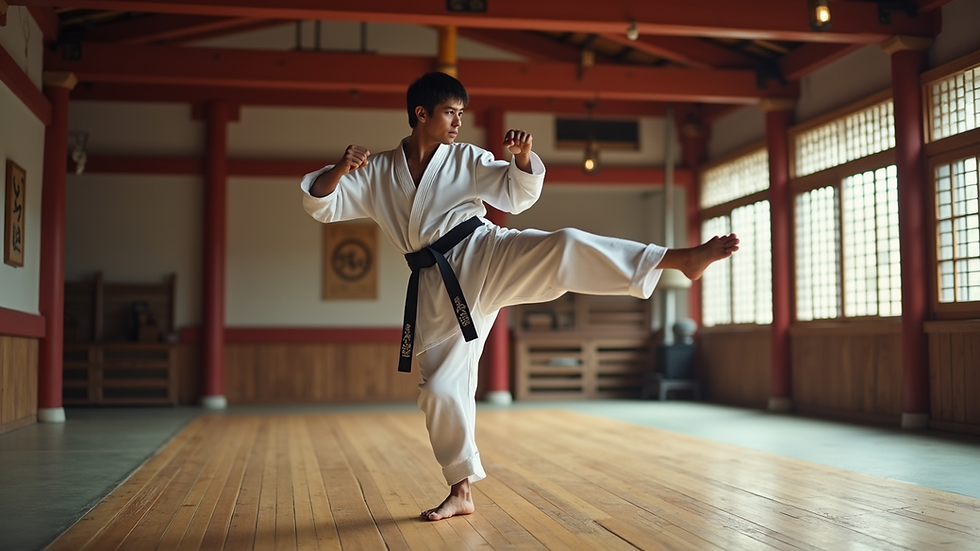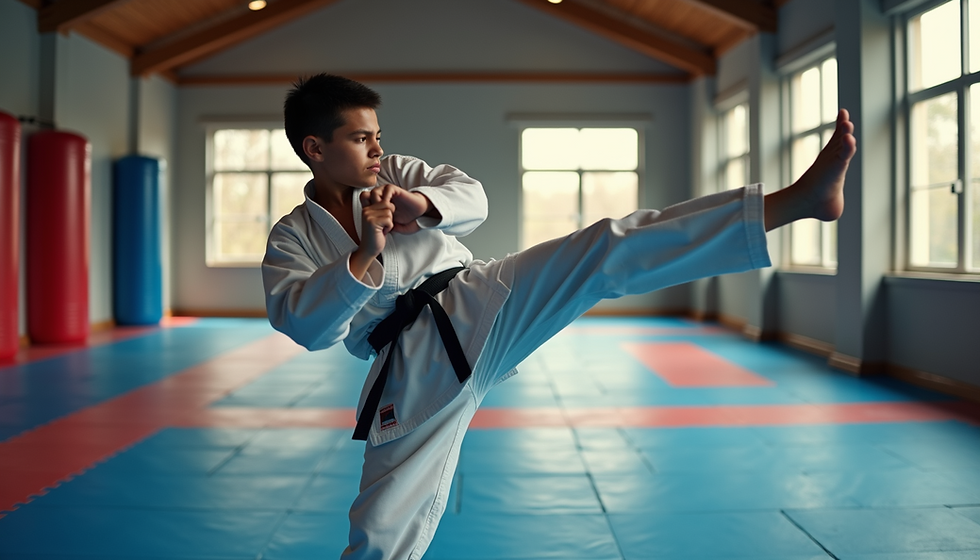The Mental Aspect of Martial Arts: Building Resilience and Mindfulness
- Daniel Carey

- Aug 30, 2023
- 3 min read
Martial arts training is often associated with physical strength, discipline, and self-defense. However, there is an equally important yet often overlooked aspect of martial arts—the mental aspect. Beyond physical techniques and movements, martial arts training can significantly contribute to building resilience, reducing stress, and developing mindfulness skills. In this article, we will explore how the practice of martial arts can empower individuals mentally, providing a transformative journey that extends far beyond the training mat.

1. Cultivating Resilience through Challenges
One of the key benefits of martial arts training lies in the cultivation of resilience. The journey of a martial artist is filled with challenges, both physical and mental. The process of mastering techniques, facing opponents, and overcoming obstacles builds resilience through repeated exposure to adversity. Martial arts teach practitioners to embrace failure as an opportunity for growth, to persevere when faced with setbacks, and to develop a never-give-up attitude. This resilience forged on the training mat often translates into other areas of life, enabling individuals to face challenges and bounce back stronger.
2. Stress Reduction and Mental Well-being
Modern life is filled with stressors that can take a toll on our mental well-being. Martial arts provide an effective outlet for stress reduction and mental rejuvenation. Engaging in physical activity releases endorphins, the body's natural mood-enhancing chemicals, which help combat stress and boost overall mental well-being. Additionally, the focused and disciplined nature of martial arts training provides an opportunity to disconnect from daily worries and immerse oneself in the present moment, promoting mental clarity and a sense of calm.
3. Developing Mindfulness Skills
Mindfulness, the practice of being fully present and aware of one's thoughts, emotions, and sensations, is a skill that can greatly benefit individuals in various aspects of life. Martial arts promote mindfulness through their emphasis on concentration, awareness, and self-reflection. During training, practitioners are encouraged to be fully present, attuned to their body movements, breathing patterns, and the energy of their surroundings. The meditative nature of martial arts forms, such as tai chi or katas or poomsae, further enhances mindfulness by fostering a deep connection between the mind and body.
By developing mindfulness skills through martial arts, individuals can carry this practice beyond the training mat, integrating it into their daily lives. Mindfulness allows us to navigate stressful situations with greater composure, make better decisions, and improve our relationships by fostering empathetic communication.
4. Self-Confidence and Empowerment
Martial arts training provides a platform for personal growth and self-empowerment. As practitioners progress in their training, they gain confidence in their abilities, both physical and mental. This newfound self-confidence extends beyond the training environment, positively influencing various aspects of life. Martial arts instill a belief in one's capabilities, enabling individuals to set and achieve goals, overcome self-doubt, and face challenges head-on. The sense of empowerment gained through martial arts training can be transformative, leading to increased self-esteem and a positive outlook on life.
Conclusion
While the physical aspects of martial arts are often celebrated, the mental aspect deserves equal recognition. Training in martial arts builds resilience, reduces stress, and develops mindfulness skills. The challenges faced on the training mat foster mental fortitude and the ability to bounce back from setbacks. The practice of martial arts provides a sanctuary for stress reduction and mental rejuvenation. As an instructor, it has been a goal to guide my students in a way that will develop their mindfulness skills.








Comments